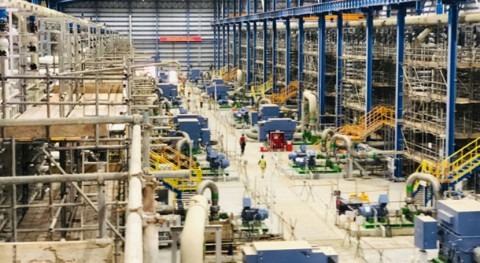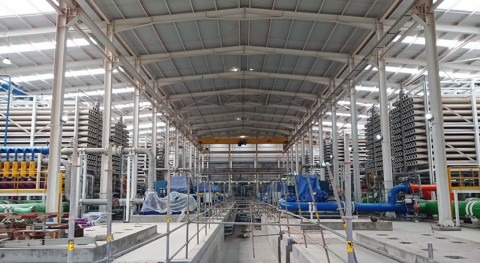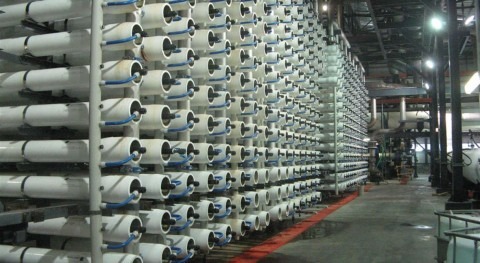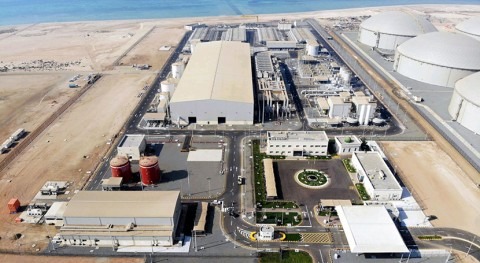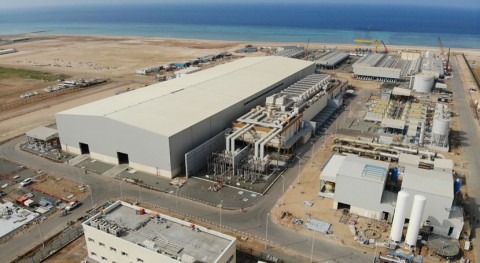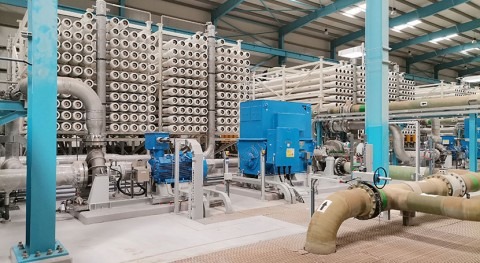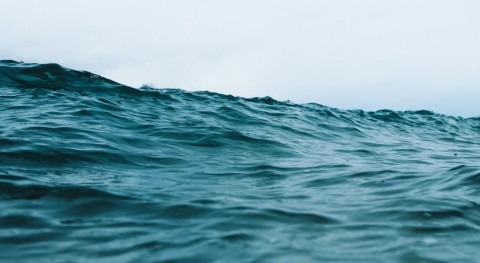Abengoa, an international company that applies innovative technology solutions for sustainable development in the infrastructure, energy and water sectors, has successfully passed all contractual tests for the Agadir desalination plant (Morocco), the largest plant designed and conceived for combined use of drinking water and irrigation worldwide, with a capacity of 275,000 m3/day and reverse osmosis technology. This milestone marks the start of documents formalization leading to the declaration of the commercial operation of the plant, which has been producing desalinated water meeting all quality standards since the beginning of the year and mitigating the effects of the water alarm suffered by the area.
The Agadir desalination plant is a benchmark project for Abengoa in the desalination sector worldwide, which will enable the production of 275,000 m3/day (150,000 m3/day of drinking water and 125,000 m3/day of water for irrigation), with the possibility of expansion to 400,000 m3/day. The project also includes the construction of an irrigation network for an area of 15,000 ha.
This is a unique project for two clients: ONEE (Office National de l'Electricité et de l'Eau Potable) and the Moroccan Ministry of Agriculture, Maritime Fisheries, Rural Development and Water and Forests, which was awarded the "Best Public-Private Partnership" prize by the International Desalination Association. The Public-Private Partnership (PPP) contract for the design, construction, financing, operation and maintenance over a 30-year period (including construction) of the Agadir desalination plant was awarded to Abengoa in 2017, with financial close having been obtained in June 2019.
In economic terms, the Agadir desalination plant will be key to boosting sectors in the region such as agriculture and tourism, which will be strengthened. It will also promote the conservation of the aquifers in the area, as it will prevent their overexploitation, thus helping to meet both domestic and irrigation water needs.
In its design, special consideration has been given to the energy efficiency of the process, without reducing the reliability and availability of the facilities. To this end, major effluent collection and discharge works have been carried out, an ultrafiltration pretreatment system has been implemented to adapt to the changing conditions of the raw water with great flexibility, and a turbine has been incorporated to capture energy from the effluent, taking advantage of the plant's height above sea level.
Abengoa has completed the commissioning works on schedule, thanks to the effort, dedication, and professionalism of the project team, which has successfully faced and overcome important challenges, such as those derived from the COVID-19 pandemic, among others. More than 2.4 million working hours have been worked without accidents resulting in sick leave, achieving the highest levels of occupational risk prevention standards and complying with the established health and safety objectives.
Abengoa, which incorporates the Sustainable Development Goals (SDGs) in all its actions and in its business strategy, has paid special attention in this project to those related to ensuring health and well-being (Goal 3), ensuring the availability of water and its proper management (Goal 6), adopting measures to mitigate and adapt to climate change (Goal 13) and preserving the life of terrestrial ecosystems (Goal 15), among others.
Abengoa, a leader in the international desalination market, currently has five plants under construction and has built a total installed capacity of 2.3 million m3/day, distributed among more than 30 desalination plants in 13 countries, which will be increased to 3.2 million when the portfolio under execution is completed.





